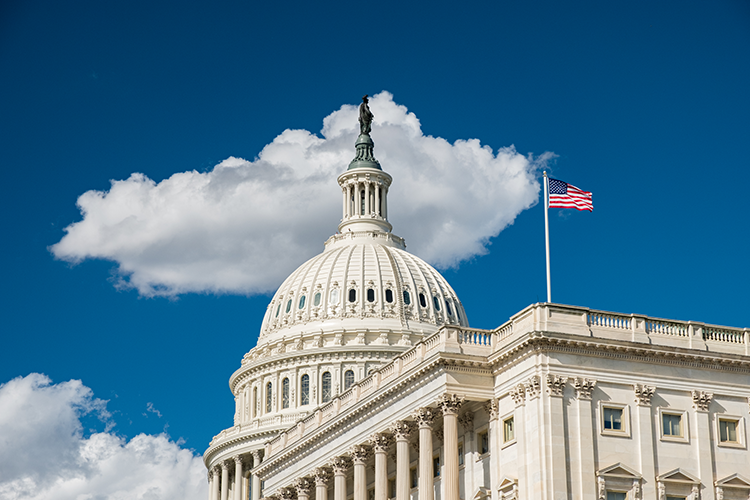ABA advocates for combating money laundering while honoring client confidentiality

Image from Shutterstock.
Attorney-client privilege and the lawyer’s ethical duty of confidentiality are bedrock legal principles that enable clients to communicate with their lawyers in confidence and are essential to protecting the client’s right to the effective assistance of counsel. By encouraging clients to seek confidential guidance on how to follow the law, these principles have made lawyers a critical and effective first line of defense against money laundering and other illicit activities.
The ABA supports reasonable efforts by the U.S. government to detect, deter and combat money laundering, including reasonable and appropriate beneficial ownership reporting measures that comply with certain fundamental principles. However, the ABA opposes legislative measures that would require lawyers to disclose information protected by the attorney-client privilege or to violate their ethical duty to preserve client confidentiality.
Despite the benefits of client confidentiality, several members of Congress have tried to enact legislation known as the ENABLERS Act that would regulate many lawyers and law firms under the Bank Secrecy Act and could require them to report extensive attorney-client privileged and other protected client information to the government. Although the objective behind this legislation is laudable and shared by the ABA, the means being proposed would pose serious and unnecessary threats to the lawyer-client relationship.
The ENABLERS Act would change the Bank Secrecy Act’s definition of “financial institution” to include lawyers and law firms that provide legal services to clients involving company formation, trust services, acquiring or disposing of interests in those entities, and many other specified financial activities. It would also require the Department of the Treasury to issue regulations that could potentially subject these lawyers and law firms to the Bank Secrecy Act’s requirements for financial institutions.
These regulations could force lawyers to submit secret suspicious activity reports on their clients’ financial transactions without notifying their clients; adhere to due diligence rules different from those already imposed by state courts; create new anti-money laundering programs within law firms that might prove costly and burdensome; and undergo audits to assess compliance.
Ethics rules already require lawyers to conduct due diligence and not assist a client in any conduct the lawyer knows is criminal or fraudulent. The ABA also may consider changes to its Model Rules of Professional Conduct at the ABA Annual Meeting in August that, if adopted by state supreme courts, would further strengthen and clarify lawyers’ due diligence obligations.
The issue is not whether lawyers should be required to follow sound, risk-based due diligence requirements when representing clients; they are already subject to such professional conduct rules adopted by every state supreme court. The issues are whether a federally mandated approach is the best way to tackle the problem and whether encroachment on lawyer-client confidentiality would help or hurt the battle against money laundering and the administration of justice.
An ENABLERS Act amendment was included in the House-passed version of last year’s National Defense Authorization Act. But the Senate rejected an alternative amendment, and neither made it into the final bill.
The ABA Governmental Affairs Office coordinated advocacy efforts opposing the ENABLERS Act with a dozen major state and local bar associations that shared the ABA’s concerns. Additionally, it worked with several entities whose practitioners would be significantly impacted by the legislation, resulting in over 700 ABA members contacting their senators. ABA President Deborah Enix-Ross also sent letters to Senate leaders and other senators opposing the amendment.
“The principle of client confidentiality promotes trust in the lawyer-client relationship and encourages clients to seek legal assistance and then candidly discuss sensitive matters with their lawyers,” Enix-Ross explained in her letters. “But if lawyers are required to submit [suspicious activity reports] on their clients’ financial transactions or divulge other privileged or protected client information to the government, this will discourage clients from consulting frankly with their lawyers and jeopardize lawyers’ unique ability to prevent money laundering and other illicit activities before they occur.”
The ABA president further expressed concerns that the amendment would undermine the right to effective assistance of counsel and the state supreme courts’ authority to regulate and oversee the legal profession.
The ENABLERS Act could adversely affect thousands of lawyers and law firms in all 50 states that provide legal services to clients in connection with corporate and trust formation, business and real estate transactions, and other financial matters.
The ABA is committed to protecting the attorney-client privilege, the confidential lawyer-client relationship and the right to effective assistance of counsel. It will vigorously oppose the ENABLERS Act if it is reintroduced this Congress. It is also leading the way in helping lawyers and law firms to protect themselves from the legal and reputational risks of facilitating money laundering and other illicit activities by analyzing and updating professional conduct responsibilities as needed and engaging in educational opportunities for lawyers and law firms working in this arena.
This story was originally published in the August-September 2023 issue of the ABA Journal under the headline: “Protecting Privilege: The ABA advocates for combating money laundering while honoring client confidentiality.”
This report is written by the ABA's Governmental Affairs Office and discusses advocacy efforts by the ABA relating to issues being addressed by Congress and the executive branch of the U.S. government.



